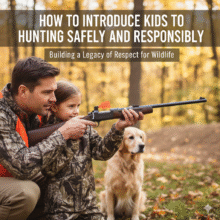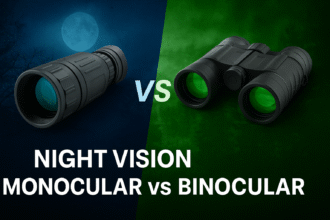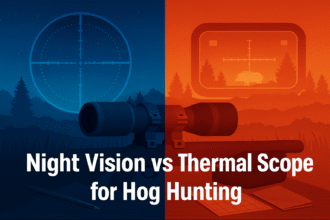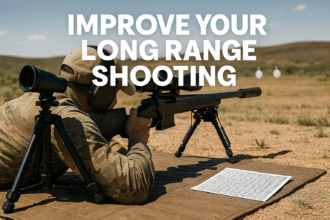How to Learn Hunting: A Comprehensive Guide for Beginners
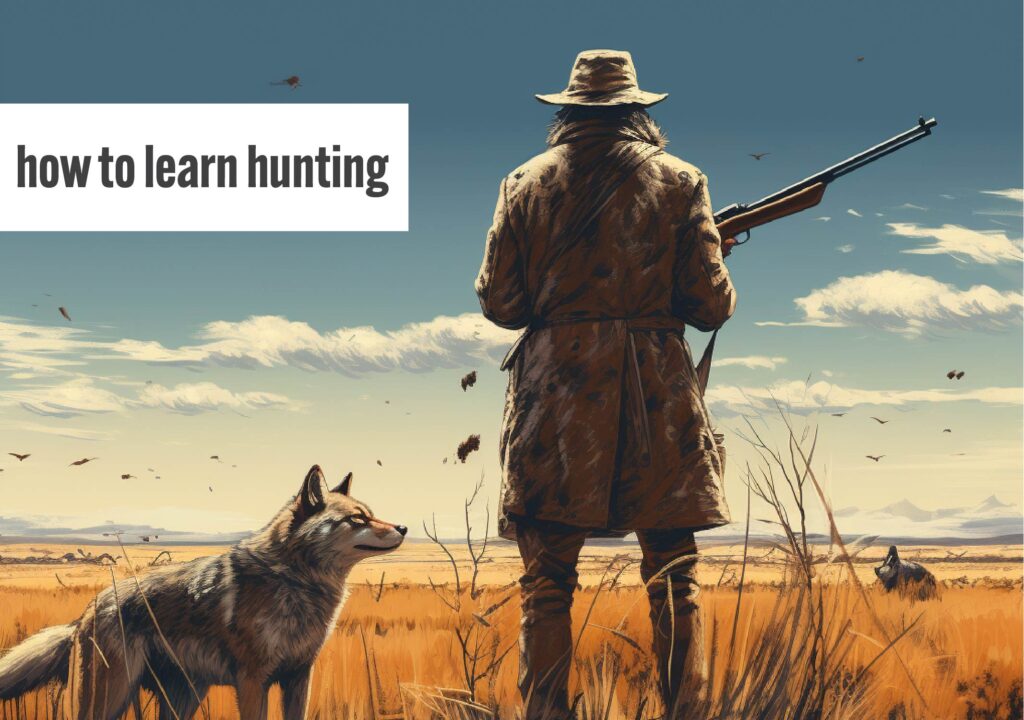
Table of Contents
- Table of contents
- Introduction
- Why Learn Hunting?
- The Ethical Hunter
- Hunting and the Law
- Types of Hunting
- Choosing Your Hunting Weapon
- Getting Fit for the Hunt
- Understanding Your Prey
- The Art of Stalking
- Survival Skills for the Hunter
- Hunting Gear Essentials
- The Hunt: What to Expect
- Reading Animal Signs
- Handling Your Kill
- Post-Hunt Procedures
- Trophy Hunting: Yay or Nay?
- Cooking Your Game
- The Future of Hunting
- Conclusion
- FAQs
Table of contents
Introduction
So, you’ve decided to learn hunting? That’s fantastic! Hunting is an ancient practice, deeply ingrained in human history, serving as both a means of survival and a test of skill. But how does a novice transition from a complete beginner to a skilled hunter? Let’s navigate this path together.
Why Learn Hunting?
You may be wondering, “Why would I want to learn hunting in the modern age?” Hunting isn’t just a hobby; it’s a journey into nature, a test of patience and skill, and, above all, a way to contribute to wildlife conservation. When practiced ethically, hunting helps manage animal populations and supports local economies.
The Ethical Hunter
Indeed, hunting is about more than just skill and strategy. An ethical hunter respects local laws, understands the importance of conservation, and values the life of their game. Hunting should never be about the thrill of the kill but rather a profound appreciation for nature.
Hunting and the Law
Different regions have different laws regarding hunting. It’s essential to understand your local hunting regulations, including license requirements, hunting seasons, and restrictions on certain animals. Legal hunting ensures the sustainability of wildlife populations and keeps you on the right side of the law.
Types of Hunting
Hunting comes in many forms: bow hunting, rifle hunting, trap hunting, and even spear hunting. Each type requires different skills and gear. Some hunters may prefer the traditional appeal of bow hunting, while others might appreciate the accuracy provided by a rifle. Experiment and find out which style suits you best!
Choosing Your Hunting Weapon
Choosing your hunting weapon is a personal decision based on your preferred hunting style, game, and comfort level. Whether you choose a bow, rifle, or trap, remember that the weapon is an extension of the hunter, not the other way around.
Getting Fit for the Hunt
Hunting can be physically demanding. It requires stamina, strength, and agility. Consider implementing a fitness regime that includes cardiovascular exercises and strength training to prepare your body for the hunt.
Understanding Your Prey
A successful hunter understands their prey: their habits, habitats, diet, and behavioral patterns. This knowledge allows you to predict their movements, choose the right weapon and strategy, and respect the life you’re pursuing.
The Art of Stalking
The art of stalking involves moving stealthily through the wilderness to get close enough to your prey for a clean shot. It requires patience, observance, and an understanding of wind direction and noise control.
Survival Skills for the Hunter
Hunting involves stepping into the unknown, and unexpected situations can arise. Basic survival skills, such as navigation, first aid, shelter building, and fire making, are crucial. They can mean the difference between life and death in extreme situations.
Hunting Gear Essentials
Apart from your hunting weapon, you’ll need appropriate clothing, a good pair of boots, a hunting backpack, binoculars, a compass, and other tools that aid in tracking and killing the game. Remember, the right gear can significantly enhance your hunting experience.
The Hunt: What to Expect
Your first hunt can be both thrilling and intimidating. It’s a game of patience and persistence. There might be long periods of inactivity, followed by short, intense moments. Embrace the process, and remember, every hunter started where you are now.
Reading Animal Signs
Reading animal signs such as tracks, scat, and feeding sites, is an essential hunting skill. It allows you to track your prey, understand their habits, and predict their movements.
Handling Your Kill
Once you’ve made a kill, the real work begins. You need to field dress the animal to preserve the meat and prevent spoilage. This process might be uncomfortable initially, but it’s a crucial part of ethical hunting.
Post-Hunt Procedures
After your hunt, there are specific procedures to follow, like reporting your kill to local wildlife authorities and properly storing your meat. Understanding these processes ensures that you remain a responsible and ethical hunter.
Trophy Hunting: Yay or Nay?
Trophy hunting, the practice of hunting an animal for its body part, is a contentious topic. While some argue that it can contribute to conservation efforts if regulated correctly, others believe it promotes animal cruelty. It’s a complex issue that deserves consideration.
Cooking Your Game
One of the rewards of hunting is cooking and eating your game. It offers a connection to your food that’s hard to find in our modern world. Plus, wild game is lean, healthy, and delicious when prepared correctly!
The Future of Hunting
The future of hunting may see advancements like improved gear and sustainable hunting practices. However, one thing is certain: the need for responsible, ethical hunting will always be paramount.
Conclusion
Learning to hunt is a rewarding, though challenging, venture. It requires patience, skill, respect for nature, and a continuous desire to learn. As you embark on this journey, remember to take your time, respect your surroundings, and above all, enjoy the process.
FAQs
Is Hunting Dangerous?
Hunting can be dangerous if not conducted responsibly. But with the right skills, equipment, and respect for nature, it’s generally safe.
What’s the Best Age to Start Learning Hunting?
There’s no “best” age. However, it’s beneficial to start learning about nature and wildlife at a young age. Formal hunting can be introduced when the individual is mentally and physically prepared.
Do I Need a License to Hunt?
Yes, you typically need a license to hunt. Regulations vary by region, so check with your local wildlife agency.
What if I Can’t Make a Kill?
Hunting isn’t just about making a kill. It’s about the journey, the learning experience, and the connection with nature. Every hunting trip provides invaluable lessons, kill or no kill.
Can Hunting Be a Full-Time Profession?
While hunting can’t usually sustain a full-time profession, there are related careers like wildlife management, conservation, and outdoor education.



